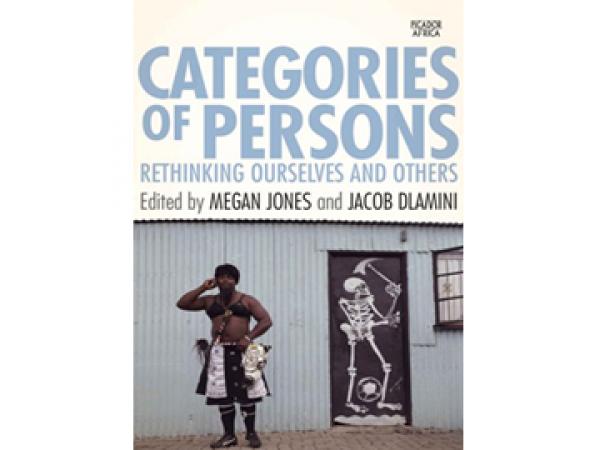Categories of Persons: Rethinking Ourselves and Others

This slim volume, containing nine essays, is at once ambitious and humble. In their introduction, editors Megan Jones and Jacob Dlamini explain that they tried to capture a variety of deeply personal lived experiences.
All of them intend to “push at the boundaries of how we think about and conceive ourselves and others.” They write that the book “is an exercise in imagination, hoping to unsettle our habits of association” - including our ideas about race, class and gender. By shaking up the habits of perception governing our everyday lives, they hope to nudge their readers towards humanising people who are different from themselves. Whether it actually achieves all of this is up for debate.
Each short essay is written as a “personal ethnography”, where writers can think about how people’s sense of themselves and of others can be shaped and can change. So each essay looks at how people’s identities are shaped by social, political, and economic relationships. Of these ‘personal ethnographies’, three deserve special mention for their ability to express their ideas in a personal way that serves the purpose of wider cultural analysis.
In the most accomplished essay, in which style and content combine most harmoniously, literature scholar Megan Jones examines how space and mobility provide fertile ground for contact with people from far-flung walks of life. These encounters break the racial and cultural isolation, separation and alienation that have resulted from apartheid. Jones argues that these moments of friendliness have the potential to unravel one-dimensional group identification.
Anthony Kaminu’s essay, which includes many photos, explores the “elaborate performances” of the fanatic South African soccer fan. He shows with great enthusiasm and careful thought how a seemingly masculine domain throws up surprising and transgressive contradictions, undermining paternalistic conceptions of gender.
In her essay, the poet Antjie Krog uses a variety of textual forms to reflect on the ancestral transmission of suffering and the wounds of memory. She includes brief ancestral reminiscences in letters and diary entries, to slivers of childhood poetry and reportage. She also invokes the South African War and the TRC to ask important questions about the notions of abuser/abused in popular South African versions of history, with a view to finding ways of healing.
In the final vignette, Kopano Ratele confronts the ways in which race, language, culture, and home are connected. An encounter with a behind the counter employee of a local supermarket forces him to evaluate the meaning of Blackness today. He argues that it is necessary to “teach children about being black in racial and cultural terms”. Part of this is the necessity of learning indigenous Black languages, because these include African cultures and traditions. For him, language is vital to identity; it plays an enormous role in determining who we are and can become.
This collection of essays could easily have slipped into an unthinking example of rainbow nation rhetoric. But it never pretends that the questions it raises about race, gender, or class implies that these do not have material effects on people’s lives.
This book is a highly commendable, honest effort to engage with serious issues. At the same time that it acknowledges the serious effects of racism, classism, and sexism, it also emphasises people’s ability to forge new ways of being and relating to one another.
Categories of Persons: Rethinking Ourselves and Others (edited by Megan Jones and Jacob Dlamini) is published by Picador Africa.

This article is licensed under a Creative Commons Attribution-NoDerivatives 4.0 International License.


